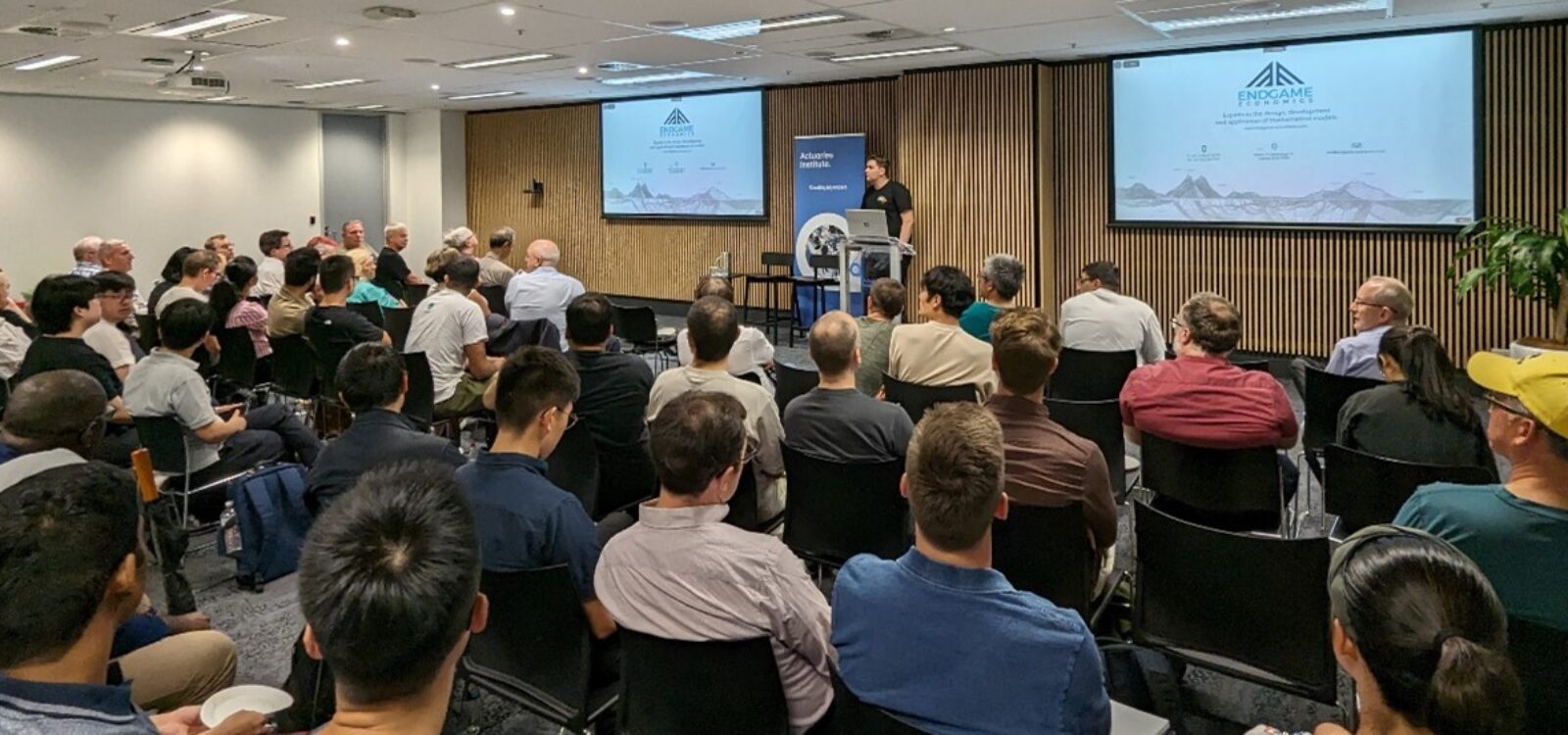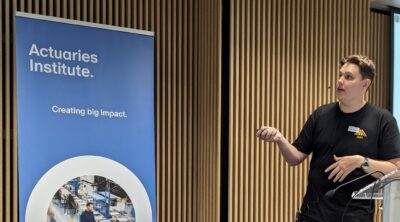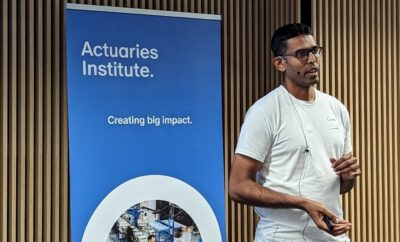
Linear Optimisation in the Energy Sector and a Dash of Career Realism
In the recent Data Science Sydney Meet-Up, Jack Simpson from Endgame Economics discussed linear optimisation in the energy sector, while Sachin Abeywardana, PhD, provided some “unsolicited advice” on a career in data science.
The most recent Data Science Sydney Meetup kicked off with the usual suspects – drinks, pizza, and networking – as a vibrant buzz from data enthusiasts filled the air.
Beginning the session, Data Science Sydney founder Eugene Dubossarsky shared that the group will soon be known as AI & Data Science Sydney, symbolising their further embracement of AI.
Next, Jack Simpson, from Endgame Economics, led the charge with a presentation that was both illuminating and practical.
Linear Optimisation in the Energy Sector

Starting with an anecdote about his days training machine learning models to track honeybees, Jack’s journey into the realm of energy was as much about passion as it was about data.
Jack shared his fondness for the energy sector, a domain abundant with structured data, likening electricity to an instantaneous supply chain where demand and supply must perpetually align. The crux of his talk was the power of linear optimisation in decision-making processes, far beyond mere prediction capabilities.
Jack highlighted three pillars of linear optimisation:
- Objective function: What you’re trying to minimise or maximise.
- Variables: The values the model is to optimise for you.
- Constraints: The limits within which the problem must be solved.
Jack then walked the audience through a simple example of how to build linear optimisation models in Python, recommending packages Pyomo, for an interface, and HiGHS for the solver (and Gurubi/gurobipy at the enterprise level).
Through his explanation, Jack made a compelling case for using optimisation to not only find solutions but to assess the worth of constraints and pinpoint bottlenecks. With anecdotes from the aviation, supply chain and staffing industries, he underscored the versatility and necessity of this approach.

Through simple and complex examples, Jack demonstrated a vital message for data scientists: the importance of complementing machine learning toolkits with linear optimisation skills. Linear optimisation is more adept at addressing certain issues and offers clarity of determinist models, allowing professionals to explain outcomes with greater confidence and transparency.
Sachin Abeywardana: Unsolicited Career Advice
Next on stage was Sachin Abeywardana, whose talk veered from the traditional path of a data science presentation, blending humour and seasoned insight.

Sachin’s candid discourse tackled the Python vs. R debate, the pros and cons of Mac over Windows, and a somewhat controversial take on PhDs – denouncing Sydney’s reluctance towards hiring PhDs under the questionable assumption of not having commercial experience.
Sachin’s tips didn’t stop there; he delved into interview strategies, the importance of visibility and documentation in one’s current job, and even suggested investing in tools like ChatGPT and GitHub Copilot to enhance productivity.
Sachin also offered up a selection of thought-provoking book recommendations, including Tiago Forte’s Building a Second Brain, a guide that presents a structured strategy for navigating the flood of information we encounter, and maximising our capacity to utilise it effectively.


His final nugget of wisdom emphasised the importance of aligning one’s efforts with the metrics by which job performance is measured. He encouraged data scientists to adopt a more pragmatic approach by accelerating the transition of models into production rather than getting ‘bogged’ in the data.
Concluding the evening
As an observer, I would say that this latest Data Science Meetup was more than a congregation of data science aficionados; it was a testament to the evolving landscape of data science and its intrinsic links to other fields.
If you missed this Meetup, you can catch-up on what was discussed here.
Join us at the next Meetup where we continue to explore the synergy between data, technology, and the real-world applications that shape our future. To ensure you’re in the loop and to secure your spot at the next event, join the Meetup group.
If you’re eager to showcase your work, research, or projects in data science, please get in touch with me (via LinkedIn), as we’re continually on the lookout for new speakers, and have a special interest in hearing from actuaries in the field!
CPD: Actuaries Institute Members can claim two CPD points for every hour of reading articles on Actuaries Digital.






